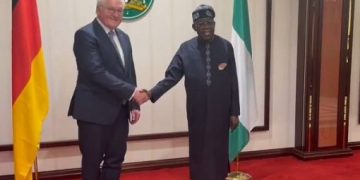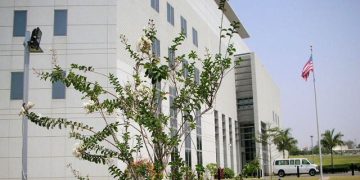Kate Osamor, a member of the United Kingdom Parliament, has written the Secretary of State for Foreign, Commonwealth and Development Affairs, Dominic Raab, over financial and training supports extended to the disbanded Special Anti-Robbery Squad (SARS) of the Nigeria Police Force.
Osamor, who represents Edmonton, in a letter dated October 15, 2020, questioned the rationale behind the funding of the dreaded SARS.
The UK lawmaker, who is also the Chair of the All-Party Parliamentary Group on Nigeria, stated that the now-defunct police unit has been involved in no fewer than 82 cases of torture, ill-treatment and extra-judicial killings since January 2017.
Her letter read:
I’m writing as a member of the International Development Select Committee and Chair of the Nigeria APPG to ask for some clarification regarding the Conflict, Stability and Security Fund project in Nigeria which is aimed at ‘increasing the capacity of Nigerian kidnap units to deliver anti-kidnap and kidnap response capacity’.
I’m sure you will be aware of the recent protests against Nigeria’s Special Anti-Robbery Squad (SARS), which has been involved in at least 82 cases of torture, ill-treatment and extra-judicial execution since January 2017.
Given these concerns and concerns generally with the nature of corruption and brutality in Nigerian law enforcement, it is obviously extremely important that no UK development spending finds its way into the pockets of groups within Nigeria who are guilty of such crimes.
READ ALSO: Nigerian Economy Positively Impacted By Border Closure – FG
For that reason, I’m very concerned about the UK development funds which have been invested in the “Nigeria Countering Organised Crime and Corruption” project and the lack of transparency when it comes to this project.
In light of the lack of detail provided and the circumstances in Nigeria, there is a high risk that the NCA is providing supports to units implicated in the abuses I have mentioned above.
I would therefore be grateful if you could confirm whether any funding or other kinds of support have, directly or indirectly, been given to the SARS unit.
















